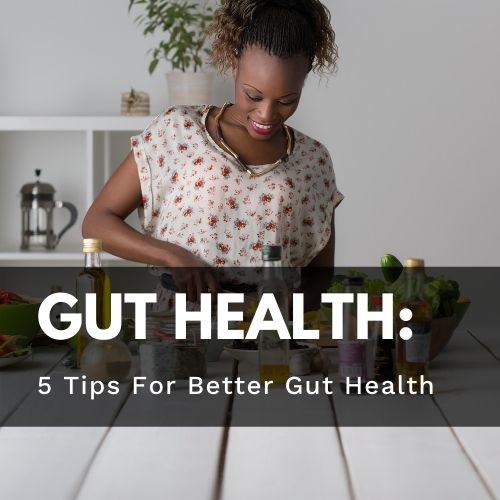Your Cart is Empty
COLLECTIONS:
SPECIAL OFFERS:
LEARN:

The Reason Why Fad Diets Don't Work
July 23, 2018 5 min read
Dieting has been around since the mid-1800s, when a formerly overweight mortician namedWilliam Banting wrote a 16-page guide to what was essentially a low-carb diet.
It was an instant best seller.
In our modern society where processed, unhealthy food is readily available, many people struggle tomaintain a healthy diet.
The dieting industry has followed Mr. Banting’s example and offers a wide array of ideas and methods, each of which claims to be the answer.
The problem, though, is that the weight loss industry is chiefly led by a desire to make money, not to promote actual health and wellbeing.
In fact, if the numerous weight loss products that are marketed and sold worked as well as companies say they do, much of their target audience would dissolve, and with it their$66 billion dollar industry would lose much of its profitability.
It is in these company's best interest not to offer true solutions but rather the illusion of health. And thus, fad diets can be just as harmful, if not more so, than the problem they claim to combat.
Read on below to learn why fad diets don't work.

The Use of Dangerous Ingredients
While weight-loss marketers may be skilled at phrasing information in such a way that it appears the product is revolutionary and proven, the reality is that manufacturers of gimmicky diet pills don’t have to prove anything to FDA.
Not only is it possible that the weight-loss products are ineffective at promoting health, they can actually do the opposite.
A Harvard study found that the "diet" industry uses chemicals and designer stimulants that have never been tested on humans.
The author of the study, Pieter Cohen,told Vox, “The combination of no human trials before these products reach store shelves combined with fact we have no systematic way of detecting harm, it's like throwing a match into a forest during a drought."
Whenproducts are pulled from store shelves because they’re linked to liver failure, orcause thousands of emergency room visits, we shouldn’t be surprised.
They Aren't One-Size-Fits-All
Diet fads come across as if they are the answer for anyone wanting to lose weight. No matter who you are, or what your lifestyle of level of health is, their advertising efforts make it clear that they are the solution each individual is looking for.
For example, for a season of time juice cleanses were trendy. Every celebrity seemed to have a paparazzi picture taken with a green bottle in hand. But juice cleanses require that participants function with far less caloric intake than recommended.
Not only that,a Harvard study found that while whole fruits are linked to lower rates of elevated blood sugar, fruit juices are actually linked to higher rates of disease!
Anddieticians note a common health effect of juice cleanses is that while many drop a lot of weight when they participate in a juice cleanse, they gain it back quickly and are often left with a nutritional deficiency.
This points to the reality that while for some, a trend like a juice cleanse can promote a long-term lifestyle change, for most, they do not receive the promised end result.
Instead of permanently losing weight and purifying their systems, what they lose is money and time they could have spent investing in changes that work for the long run.
Diet Fads Are Driven by the Wrong Motivators
Diet fads will always be potentially harmful because the diet industry is not motivated by health. They are interested in whatever will allow their bottom line to increase. Unfortunately, that driving force collides with a societal obsession with being thin and lean.
Beyond the fact that the products are often unhelpful, their marketing efforts reveal that their end goal is to exploit the desires of their target audience. In the age of lifestyle content marketing, what their efforts continually suggest is that the product will deliver extreme thinness.
As marketing expert Erica Conley-Komoroske points out, the marketing of today targets, “The experience and lifestyle that matters most to customers.” What the marketing of most diet fad companies reveals is that they are really selling extreme thinness above true health.
The images and language they utilize suggest their products will help customers achieve aesthetic beauty more than physical well-being.
This is dangerous because research shows that weight prejudice and the dieting industry can have negative effects on the self-image and self-esteem of those in their target audience.
You Have What You Need
Perhaps one of the primary reasons fad diets are damaging is because they perpetrate the idea that the average person is incapable, in and of themselves, to change their lives.
The industry survives by pushing a belief that you’re trapped in a life you’re unsatisfied with unless you shell out lots of money for specialty products.
The reality is that each individual is his or her own best advocate. While some diets can be described as sensations, they can rarely be described as long-term lifestyle changes.
The key to achieving change is making gradual, attainable ways to do so. Check out our tips for achieving longterm health and wellness below:

1. Eat Well:
This is no secret: one of the keys to a healthy lifestyle is eating the right foods.As the Keck School of Medicine notes, “Everything you eat contributes to how you feel, so making sure that you choose the best foods is an important way to take care of yourself.”
Everything you eat impacts you, so choose wisely.
2. Be a Mover and a Shaker:
This is important, if you hate exercising consider how you can change your relationship with it. Banish all thoughts of the treadmill, and pick up a sport from your past you love.
If you’re bored, ask your fitness-savvy friends how you can change up your routine. Think about why it’s not a part of your life and troubleshoot until you have a solution.
3. Pursue Overall Health:
Don’t let the diet industry dictate to you what you value most. Your life will improve if your goal is not ultimately how you look, but how you feel.
You eat well, you exercise, and youchoose supplements that are made in FDA-inspected facilities, with purity and safety in mind.
Good health, while not always easy, really is as straightforward as that.
A good rule of thumb is that if a trending diet is marketed in a way that predominantly preys upon the insecurities of its target audience, instead of promoting health and wellness above all, you should stay away.
Not only are these diets often not helpful, they can even cause harm to those who try them. Except for a rare few, they are often money drains in the best of cases, and harmful to one’s health in the worst.
The best bet is to pursue good nutrition and a balanced activity level — because that is the only tried and true path to good health.
Leave a comment
Comments will be approved before showing up.
Also in Health
Subscribe
Sign up to get the latest on sales, new releases and more …
Join the Utzy Naturals Club!
Sign up and get the latest on sales, new releases, and more...









